Pantry Pests
As their name suggests, pantry pests are those insects that lay their eggs in, feed on, and contaminate dry goods. The most common pantry pests in and around Spokane, WA, include Indian meal moths, carpet beetles, grain beetles, and rice weevils.
Pantry pest females lay their eggs on or in dry goods. After hatching, the tiny, worm-like larvae begin feeding on and contaminating the dry goods with their saliva and excrement. The larval stage is responsible for most of the food contamination that pantry pests cause.

What Kinds of Pantry Pests Are there?
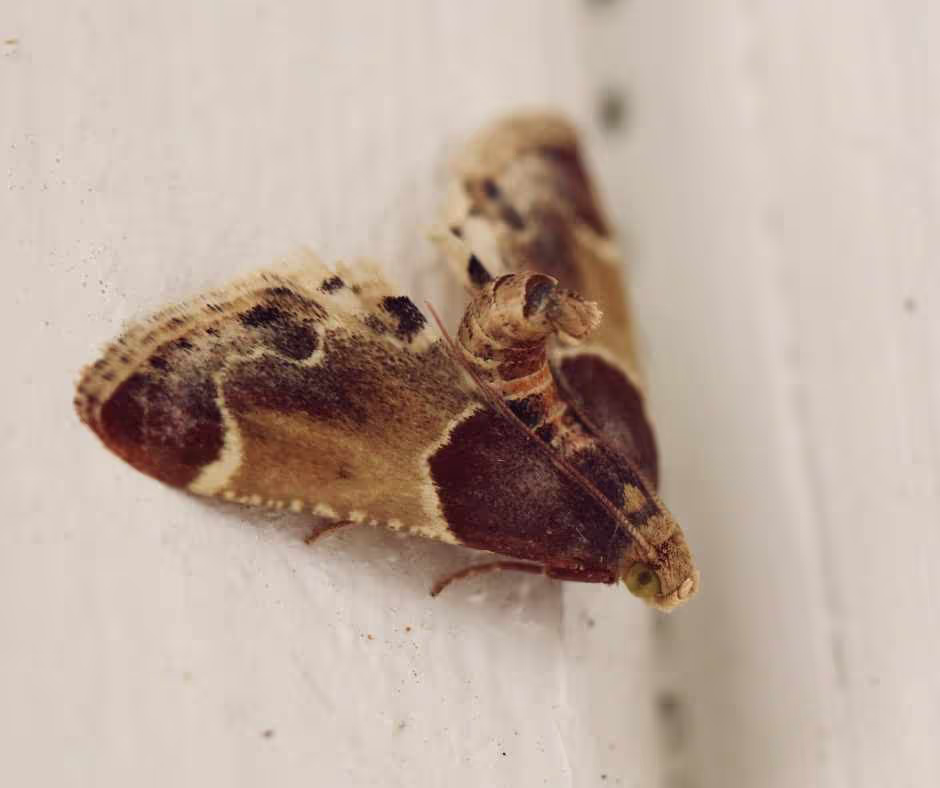
These small, brownish-gray moths lay their eggs on stored grains, nuts, and other dry foods. The larvae that hatch from the eggs will spin webbing and feed on the food, potentially contaminating it.
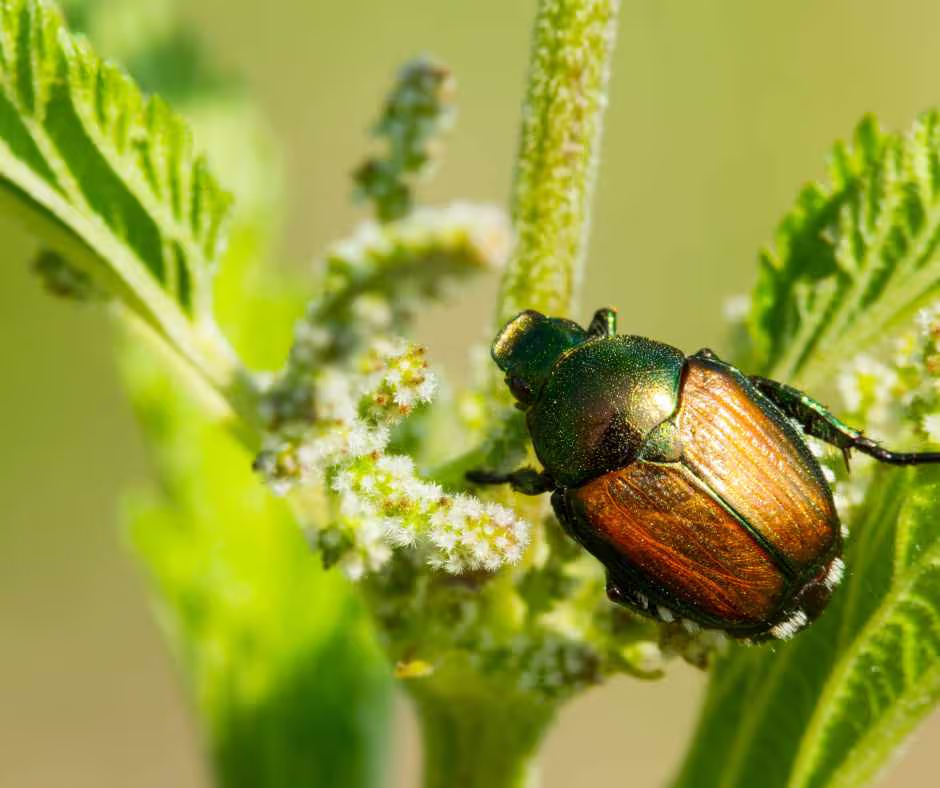
Also known as flour beetles, these small, reddish-brown beetles feed on flour, cereals, and other grain products.
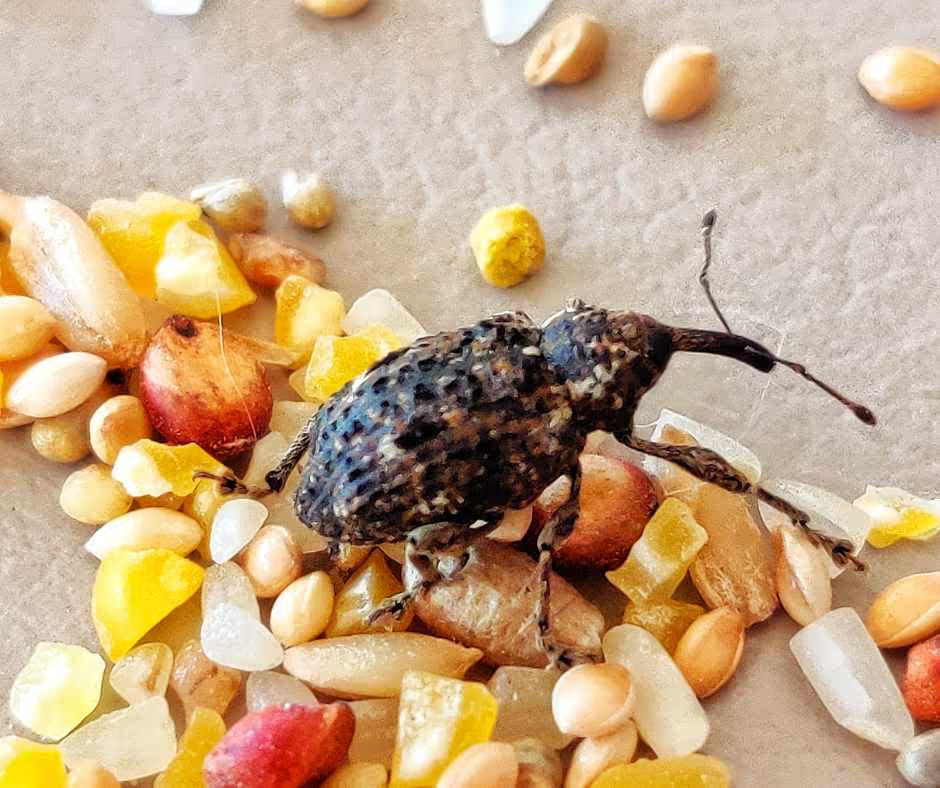
These small, dark-brown beetles have a long snout and feed on stored grains, beans, and nuts.
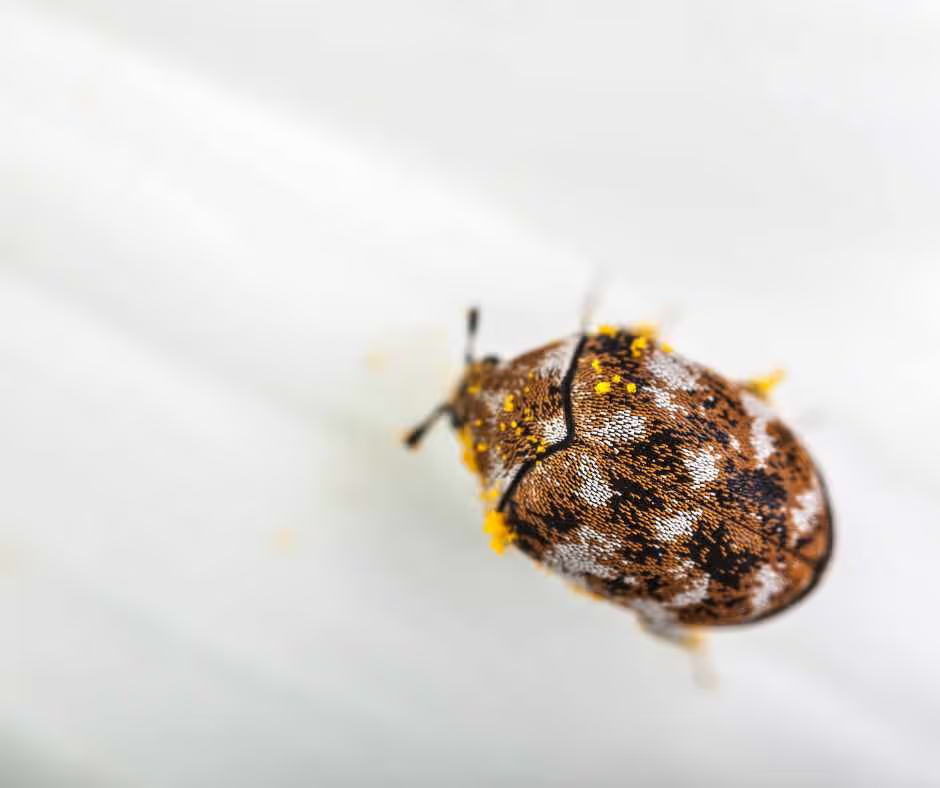
While not exclusively pantry pests, carpet beetles can infest dry foods like grains and cereals if they are present in the area.
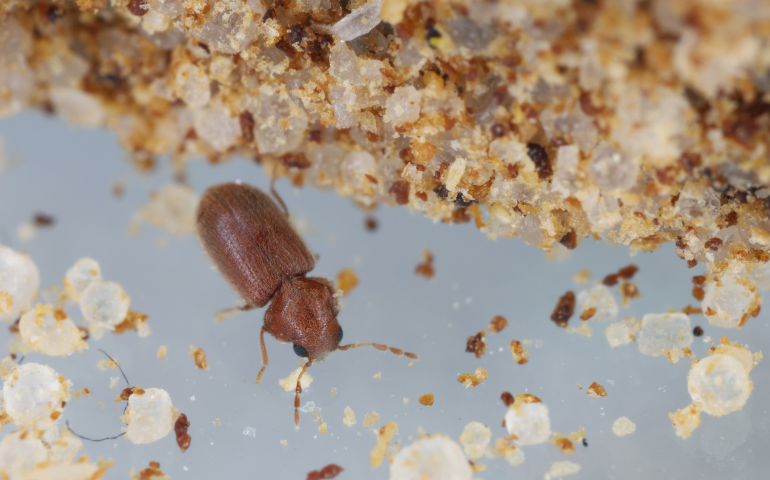
These small, brown beetles are known for infesting a variety of stored food items, including flour, spices, and dried herbs. They can also infest non-food items like prescription drugs and leather.
If an infestation is detected, it’s important to promptly identify and eliminate the infested items and take steps to prevent a recurrence. Contact us today if you’re experiencing pantry pest problems!
How can I keep my pantry free of these pests?
Keeping your home clean and well-organized is key to preventing pantry pests from infesting your dry foods. Here are a few tips to help keep your pantry pest-free:
- Store your dry foods in airtight containers with tight-fitting lids. This will prevent pantry pests from getting into your food.
- Clean up any spills or crumbs immediately. Even the tiniest bit of food can attract pantry pests.
- Regularly inspect your pantry for signs of pantry pests, such as webbing, larvae, or adult insects. If you find any, dispose of infested items and thoroughly clean your pantry.
- Rotate your dry foods regularly, using older items first. This will help prevent food from sitting in your pantry for extended periods of time and potentially becoming infested.
By taking these steps, you can help prevent pantry pests from infesting your dry foods and keep your home clean and pest-free.
How do pantry pests enter my home?
Pantry pests can enter the home through various means. They can come in through contaminated food products that are already infested when purchased from the store. This is particularly common with pantry pests such as Indian meal moths and grain beetles. Open doors and windows can also provide entry points for pantry pests, especially flying insects like moths. Small cracks and gaps in walls, floors, and foundations can also provide entry points for pantry pests to enter the home. Pantry pests may also be present in pet food, which can then spread to other dry foods in your pantry. Additionally, bringing infested items such as used furniture or antiques into the home can introduce pantry pests.
To prevent pantry pests from entering your home, it’s important to regularly inspect your dry foods and pantry for signs of infestation. This will help you catch any potential infestations early before they can spread to other foods in your pantry. Keeping your home clean and well-organized can also help reduce the likelihood of pantry pests entering and thriving in your pantry. Store your dry foods in airtight containers with tight-fitting lids, clean up any spills or crumbs immediately, and rotate your dry foods regularly, using older items first. Additionally, consider using natural pest repellents, such as cedar or lavender sachets, to help keep pantry pests at bay.
